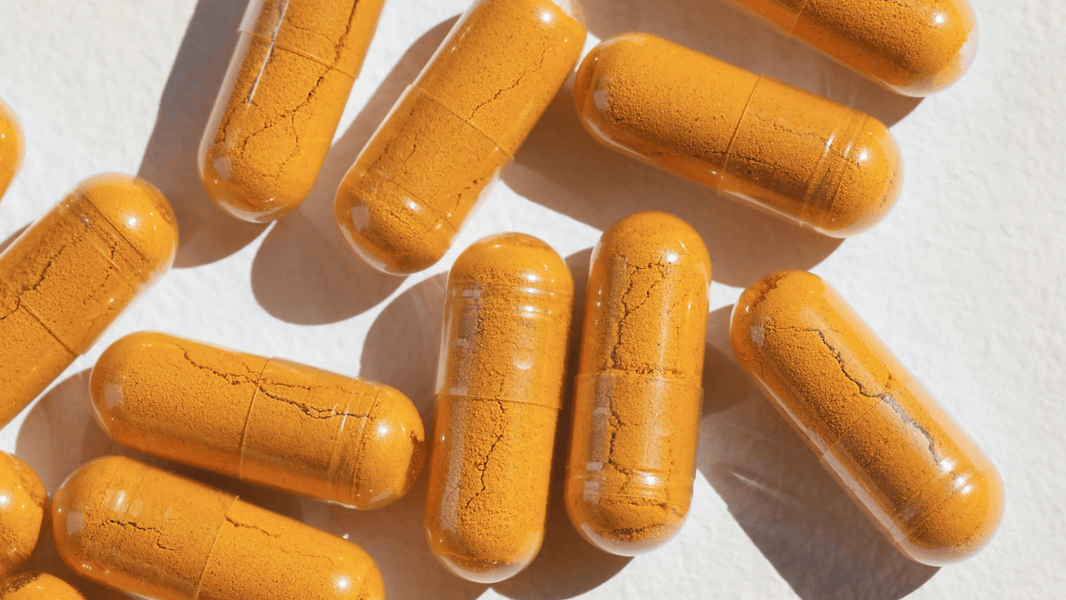The gut microbiota is at the heart of many discussions in health and nutrition – and for good reason! This complex ecosystem, composed of billions of microorganisms, plays an essential role in:
- Optimal digestion and better absorption of nutrients.
- Strengthening the immune system.
- Mood balance, thanks to the gut-brain axis.
But this balance is fragile. A disruption of the microbiota, called dysbiosis, can lead to various problems: bloating, diarrhea, constipation, weight gain, fatigue, allergies, and more.
Among the most common causes, we find:
- Taking antibiotics, which destroy beneficial bacteria.
- An unbalanced diet, low in fiber and fermented foods
- Stress, which can alter the composition of the microbiota.
In response, probiotics appear to be a promising solution. These live microorganisms, when present in sufficient quantities, can help rebalance the microbiota and promote digestive well-being.
🔎 But how do you choose the right probiotic?
- But what do we really know about their effectiveness?
- Which strains should be favored according to needs?
- How to recognize a good probiotic?
Today, Compleo helps you see things more clearly and choose effective and well-formulated probiotics!
🦠 What is a probiotic?
The word probiotic comes from the Greek pro bios , which means "for life." According to the official definition of FAO and WHO (2001), a probiotic is a live microorganism that, when ingested in sufficient quantities, exerts a beneficial effect on the health of the host.
Probiotics are naturally found in certain fermented foods: yogurts, aged cheeses, kefir, sauerkraut, miso, etc. However, as our modern diet is often poor in natural probiotics, a supply of ferments in the form of a food supplement can be useful.
What the science says: The beneficial effects of probiotics
The beneficial effects of probiotics are numerous and have been demonstrated by numerous scientific studies. Please note that these effects are specific to each strain and cannot be generalized to all probiotics.
Indications for probiotics
- Preventive approach to allergies and eczema
- Support for functional bowel disorders ( the term functional generally refers to disorders related to bowel movements, no structural abnormalities are observable ):
- Irritable Bowel Syndrome (IBS)
- Abdominal bloating
- Constipation
- Diarrhea
- Abdominal pain
- Support in the treatment and prevention of antibiotic-associated diarrhea.
- Support in inflammatory bowel disease (IBD)
- Support for certain intolerances, for example lactose intolerance
- Support for vaginal infections
📌 To remember : Each strain has specific properties, it is essential to choose a probiotic adapted to your needs.
What the law says: what can we say about probiotics?
In Europe, the labeling of food supplements containing probiotics is strictly regulated. For a long time, even the use of the term "probiotics" was prohibited. Indeed, in Regulation (EC) No. 1924/2006, the European Commission considers the term "probiotics" to be an unauthorized health claim, in the sense that it contains "the description or indication of a functionality or an implied effect on health."
A recent relaxation… but supervised
Faced with the widespread use of the term in several European countries, the DGCCRF (Directorate General for Competition, Consumer Affairs and Fraud Control) has revised its doctrine. Thus, the term "probiotics" is authorized on the labels of food supplements, provided:
- That it appears only as a category name, in the same way as "vitamins" or "minerals", to characterize the nature of the substances present.
- That the strains have a proven history of human consumption. If this is not the case, they may fall under the Novel Food Regulation, which requires a specific authorization procedure before marketing.
- That the strains are correctly characterized (precise identification at the strain level).
- That they do not present resistance to antibiotics, to avoid any risk to public health.
- That it contains at least 10 7 at 10 9 live cells per strain per day, to ensure a sufficient quantity of active organisms.
- That only the words "contributes to the balance of intestinal flora" appear on the label, or any words with a strictly similar meaning.
What remains forbidden
Claims such as "strengthens" or "increases" the microbiota are illegal health claims.
Therefore, the beneficial effects according to science mentioned above cannot be displayed on the packaging, nor in the communication of brands on their products.
The properties of probiotics
Not all microorganisms can be classified as probiotics. According to the AFSSA, a probiotic must meet several strict criteria:
1️⃣ Bring a proven benefit to the host
A probiotic must have demonstrated specific positive health effects through rigorous clinical studies.
2️⃣ Be stable and viable until consumption
A probiotic must not lose its effectiveness before being consumed. To do this, it must be:
- Properly dried (controlled dehydration) to maintain viability.
- Stored under suitable conditions (some require refrigeration).
3️⃣ Survive the digestive passage
Probiotics are only effective if they reach their primary site of action alive. To reach the intestine, a probiotic must withstand the harsh conditions of the digestive tract (gastric acidity, digestive enzymes, bile salts, etc.). The probiotic must therefore be protected by suitable technology (e.g., gastro-resistant capsules, microencapsulation).
4️⃣ Be in sufficient quantity to be effective
The probiotic should be present in optimal quantity, generally ≥ 10 7 CFU per strain (quantity of bacteria), in order to compensate for losses and guarantee a significant effect.
5️⃣ Establish and interact with the existing microbiota
Once in the intestine, a good probiotic must:
- Attach to the intestinal mucous membranes and multiply.
- Interact with the microbiota (each individual has a unique microbiota, this interaction is decisive).
Probiotic + Prebiotic = Symbiotic
Probiotics are often associated with the concept of prebiotics, insoluble dietary fibers that are indigestible by intestinal enzymes and nourish and promote the growth of good bacteria. Thus, prebiotics help maintain the existing intestinal flora, while probiotics help enrich its diversity. When probiotics are combined with prebiotics, we speak of symbiotics!
Which strains for which needs?
The effectiveness of a probiotic depends primarily on the choice of strains. Each strain has specific properties and has been studied for specific indications. It is therefore essential to rely on the results of clinical studies to make an informed choice.
📌 Attention : Research on probiotics is still ongoing, and not all strains are equally documented. For example, while some organizations remain cautious about the widespread use of probiotics for conditions like irritable bowel syndrome (IBS) due to the heterogeneity of studies, some strains have shown promising results in certain settings.
Summary of strains and their potential benefits
The table below lists strains that have been scientifically studied for their potential effects on digestive and general health.
However, these effects are derived from clinical research and do not constitute health claims authorized by regulatory authorities (EFSA in Europe, FDA in the United States). In other words, although these probiotics have shown benefits in the laboratory or in clinical trials, their effectiveness may vary depending on the individual. Their use should not be considered a medical treatment.
.png)
What the studies say (and don't say)
Current research does not always allow for definitive recommendations for every digestive discomfort. Studies tend to address general conditions (for example, IBS) without always specifying their impact on specific symptoms (bloating, abdominal pain, irregular bowel movements, etc.).
Additionally, not all commercially available products are created equal: many probiotics available on the market have not been tested in rigorous studies or are offered in a different form and dosage than those studied.
It is therefore important to note that if the "format" of the probiotic differs from the experimental conditions (dosage, protection, etc.), the conclusions of the studies are not necessarily transferable.
Our advice for choosing a probiotic
Not all probiotics are created equal. Here are the key criteria to check:
1️⃣ Check the precise nomenclature
The effectiveness of a probiotic depends on the strain used, not just the genus or species. A good probiotic should therefore list the genus, species, and strain ( e.g., Bifidobacterium bifidum BB01, Lactobacillus rhamnosus GG).
2️⃣ Choose a sufficient dosage
Effectiveness relies on a good number of Colony Forming Units (CFU). The minimum set by the DGCCRF is 10⁷ CFU per strain, but we recommend 10⁹ CFU for optimal effectiveness.
3️⃣ Ensure optimal protection
Probiotics must survive stomach acidity. Choose advanced protection technologies, such as gastro-resistant capsules or double/microencapsulation. Be wary of conventional powders and capsules: without specific protection, their effectiveness is often reduced.
4️⃣ Prefer a formula enriched with prebiotics
Prebiotics nourish probiotics and optimize their effectiveness. A good probiotic often contains a prebiotic to maximize its action and strengthen the gut microbiota.
5️⃣ Avoid unnecessary additives and false promises
Beware of marketing traps! Avoid probiotics containing unnecessary additives (titanium dioxide, sweeteners, artificial flavors). Beware of exaggerated or misleading claims ("boosts immunity," etc.) that are not authorized by the EFSA.
In short, a good probiotic is one that is sufficiently dosed, well protected and accompanied by prebiotics for optimal and long-lasting action!
📖 Bibliography
Scientific journal articles
- Berni Canani R, Sangwan N, Stefka AT, Nocerino R, Paparo L, Aitoro R, Calignano A, Khan AA, Gilbert JA, Nagler CR. Lactobacillus rhamnosus GG-supplemented formula expands butyrate-producing bacterial strains in food allergic infants. ISME Journal. 2015;9:2006–2015.
- Cheng H, Ma Y, Liu X, Tian C, Zhong X, Zhao L. A Systematic Review and Meta-Analysis: Lactobacillus acidophilus for Treating Acute Gastroenteritis in Children. Nutrients. 2022;14:682.
- Doré J, Schir A, Hannequart-Gramet G, et al. Design and evaluation of a 16S rRNA-targeted oligonucleotide probe for specific detection and quantification of human faecal Bacteroides populations. Syst Appl Microbiol. 1998;21:65–71.
- Frese SA, Hutton AA, Contreras LN, Shaw CA, Palumbo MC, Casaburi G, Xu G, Davis JCC, Lebrilla CB, Henrick BM, et al. Persistence of Supplemented Bifidobacterium longum subsp. infantis EVC001 in Breastfed Infants. mSphere. 2017;2.
- Goodoory VC, et al. The efficacy of probiotics in irritable bowel syndrome: A systematic review and network meta-analysis of randomized controlled trials. Gastroenterology. 2023.
- Groeger D, O'Mahony L, Murphy EF, Bourke JF, Dinan TG, Kiely B, Shanahan F, Quigley EM. Bifidobacterium infantis 35624 modulates host inflammatory and metabolic processes in vitro. Nutrients. 2013;5:638-652.
- Hill C, Guarner F, Reid G, Gibson GR, Merenstein DJ, Pot B, Morelli L, Canani SF, Nagler CR, et al. The ISAPP consensus statement on the scope and appropriate use of the term probiotic. Nat Rev Gastroenterol Hepatol. 2014;11(8):506-14.
- Inchingolo F, Inchingolo AM, Malcangi G, De Leonardis N, Sardano R, Pezzolla C, de Ruvo E, Di Venere D, Palermo A, Inchingolo AD, et al. The Benefits of Probiotics on Oral Health: Systematic Review of the Literature. Pharmaceuticals. 2023;16:1313.
- Kazemian A, et al. Synbiotic Containing Pediococcus acidilactici and Galactooligosaccharides Reduces Abdominal Pain and Improves Quality of Life in IBS Patients: A Randomized Double-Blind Placebo-Controlled Trial. Nutrients. 2020;12:1999.
- Khaledi M, Sameni F, et al. Psychobiotics for the treatment of depression: A systematic review. Heliyon. 2024;10:e24909.
- María Remes Troche J, Coss Adame E, Ángel Valdovinos Díaz M, Gómez Escudero O, Eugenia Icaza Chávez M, Antonio Chávez-Barrera J, et al. Lactobacillus acidophilus LB: a useful pharmabiotic for the treatment of digestive disorders. Ther Adv Gastroenterol. 2020;13:1756284820971201.
- McMurdie PJ, Holmes S. Waste Not, Want Not: Why Rarefying Microbiome Data Is Inadmissible. PLoS Comput Biol. 2014;10:e1003531.
- Riehl TE, et al. Probiotics prevent nuclear factor-κB–dependent intestinal gene expression by inhibiting chymase activity. Gut. 2020;PMC May 06.
- Schnadower D, et al. Probiotics for Treating Acute Gastroenteritis in Children: A Systematic Review and Meta-analysis of Published Randomized, Double-Blinded, Placebo-Controlled Trials. N Engl J Med. 2019;PMC May 22.
- Szajewska H, Kołodziej M. Systematic Review with Meta-Analysis: Saccharomyces boulardii for Treating Acute Gastroenteritis in Children—A 2020 Update. Food Pharmacol Ther. 2020;51:678–688.
- Whelan K, Myers CE. Safety of Probiotics in Patients Receiving Nutritional Support: A Systematic Review of Case Reports, Randomized Controlled Trials, and Nonrandomized Trials. Am J Clin Nutr. 2010;91:687–703.
Dissertations and theses
- Bonnaud Morgane. Irritable bowel syndrome: synthesis of current knowledge for better management in the pharmacy. Doctoral thesis in Pharmacy, Nantes University, 2024.
- Hernoune Soumia, Boukerika Amal. Bifidobacteria and probiotics. Master's thesis, Abdelhafid BOUSSOUF-Mila University Center, Academic year: 2022/2023.
- Sehibi Amal, Laouasna Amira. Lactic acid bacteria as a probiotic. Master's thesis, Abdelhafid BOUSSOUF-Mila University Center, Academic year: 2021/2022.
Conferences and scientific reports
- Probiotic control at SCL - L35. Food Supplements Conference, 10/14/11.
- ANSES. Effects of probiotics and prebiotics on flora and immunity in adults. Available on: ANSES .
Online sources
- Probiotics - Our microbiota can do without them - Survey - UFC-Que Choisir.
- Probiotics: How to Choose the Right Ones? | Micronutrition | PiLeJe Health Review.
- Probiotics, bifidobacteria, saccharomycetes. Available on: Vidal .



